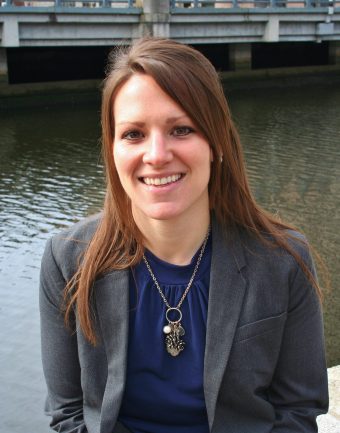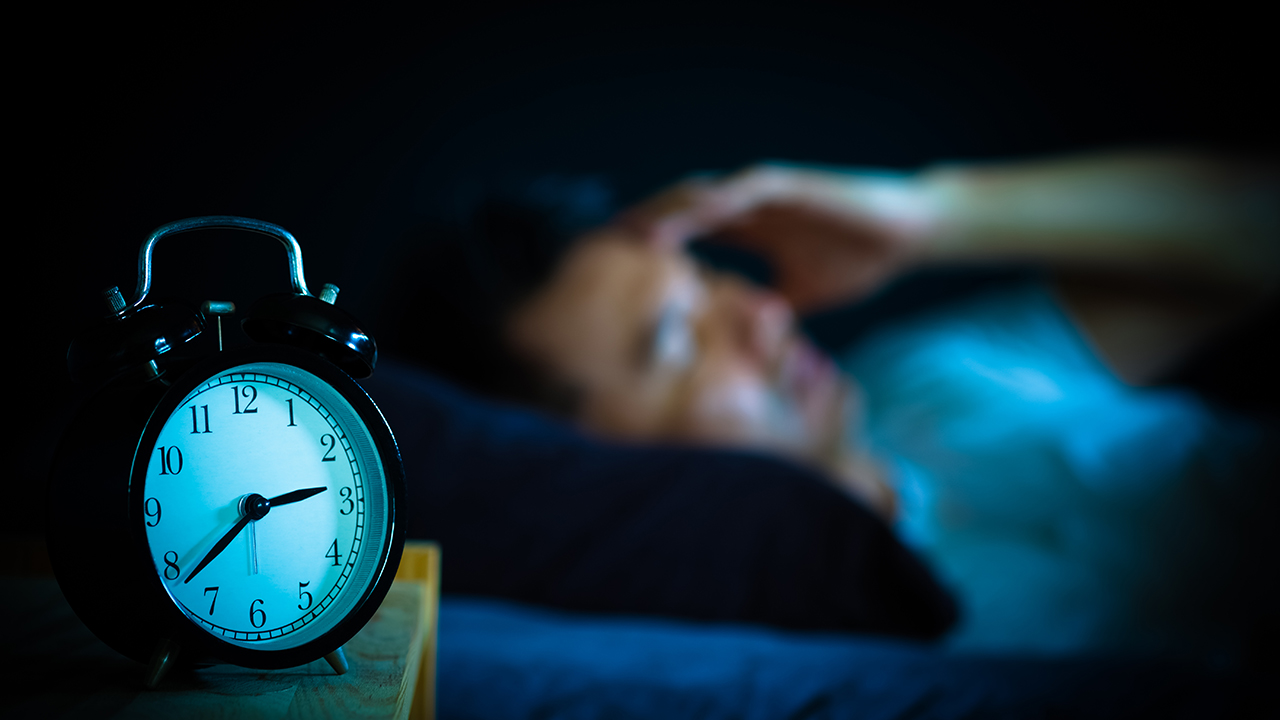April 13,2021
Contact, Sara Diedrich, diedrichs@missouri.edu, 573-882-3243
While completing predoctoral work at a VA facility in Rhode Island, Mary Beth Miller discovered many of the military veterans seeking treatment struggled with insomnia. She wondered if first treating the sleep disorder would impact other aspects of the veterans’ health.
Now an assistant professor in the Department of Psychiatry at the University of Missouri, Miller is conducting a 22-week study that targets veterans deployed after 9/11 who suffer from insomnia and who also drink alcohol. Participants must be actively drinking but don’t have to have an issue with alcohol.
The idea is to measure the success of treating insomnia, even if the participant drinks alcohol — a course of action some sleep experts discourage. However, Miller is finding that despite their alcohol use, veterans participating in the study are benefitting from the treatment, even if the intervention is minimal.
“Insomnia tends to be a heavy burden in the veteran population,” said Miller, who joined the MU faculty in 2017. “The goal is to provide a benefit to veterans and to change the way we approach insomnia treatment for veterans in the future.”

During her work with veterans in Rhode Island, Miller learned that even among those enrolled in a substance use clinic, veterans were more concerned about their trouble sleeping than their use of drugs and alcohol.
“They thought if they could get their sleep on track, they would have an easier time getting a handle on their substance use,” Miller said. “And they might be right.”
With that in mind, Miller developed an insomnia study for veterans who drink but don’t necessarily have problems with alcohol. She wants to see how the study goes with this population before testing among veterans with more severe alcohol problems.
The study randomly splits participants into two groups. In one, veterans attend a one-time session with a sleep specialist to discuss general tips and recommendations to improve their sleep. In the other group, participants attend up to five sessions of cognitive behavioral therapy for insomnia, which is a type of treatment that targets both the behaviors that maintain sleep problems and the thoughts or beliefs that drive those behaviors. No one stays overnight.
“We do a full sleep assessment to figure out what your sleep problem is, and we send you home with a device that can determine if you have sleep apnea,” Miller said. “If you don’t have insomnia, which is what we’re treating in this study, we tell you that, and we also tell you what your sleep problem is and how you might treat it.”
Miller, who grew up in Wardsville, Missouri, near Jefferson City, graduated from Westminster College in Fulton, with degrees in psychology and Spanish. She later received her doctorate in clinical psychology from Oklahoma State University after completing her clinical residency through the Brown University training consortium. Before coming to Mizzou, she completed a National institute of Health-funded postdoctoral fellowship at the Center for Alcohol and Addiction Studies at Brown University.
Miller, who is married to a military veteran and has extended family members in the military, became interested in working with veterans during her graduate training. Plus, she had once seriously considered joining the military herself.
“Veterans who deploy overseas, in particular, see and experience things that the majority of Americans, including myself, won’t ever experience and can’t imagine,” Miller said. “Unfortunately, these unique experiences also put them at risk for complex mental health problems — arguably, mental health problems that are more complex than ones you might see in the general population.”
Miller said she can’t guarantee participants in her insomnia study will be cured of their sleep disorder: “But both treatments should provide some level of benefit for people who follow the recommendations.”
Want to participate?
If you’re a United States military veteran deployed after 9/11 who suffers from insomnia, you might be eligible for a research study by the MU Department of Psychiatry. Participants must be actively drinking but don’t have to have an issue with alcohol. To learn more, text: SLEEPY to 21000.




